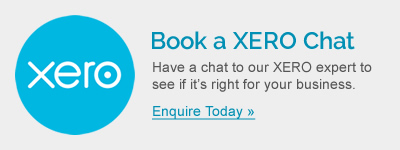Proposed Division 296 Super Tax
The Australian Labor Government’s proposed Division 296 tax, set to commence on July 1, 2025, will impose an additional 15% tax on superannuation earnings for balances exceeding $3 million, including unrealised capital gains. This policy, part of the Treasury Laws Amendment , has sparked significant debate due to its taxation of unrealised gains and lack of indexation for the $3 million threshold.
Understanding the Tax
-
How it works: The tax applies to the proportion of earnings on superannuation balances above $3 million at a rate of 15%, in addition to existing taxes (e.g., 15% on fund income). Earnings are calculated as the increase in the total superannuation balance (TSB) from one financial year to the next, adjusted for contributions and withdrawals. Unrealised gains (e.g., increases in asset values like property or shares that haven’t been sold) are included in this calculation.
-
Key features:
-
No indexation of the $3 million threshold, meaning more people may be affected over time due to inflation.
-
Negative earnings (losses) can be carried forward to offset future tax liabilities but do not result in refunds.
-
The tax is levied on the individual, who can pay it personally or from superannuation funds, which may require liquidating assets.
-
-
Impact: Approximately 80,000 Australians (0.5% of super account holders) are initially affected, particularly those with self-managed super funds (SMSFs) holding illiquid assets like property or businesses.
Strategies to Avoid or Mitigate the Tax
Below is a table summarizing strategies to avoid or mitigate the impact of the Australian Labor Government’s proposed Division 296 tax on superannuation balances exceeding $3 million, effective from July 1, 2025.
| Strategy | Description | Benefits | Considerations/Risks |
| Reduce Super Balance Below $3M | Withdraw funds or redirect to other structures (e.g., family trusts, personal investments) to keep super balance under $3M. | Avoids Division 296 tax entirely if balance is below threshold. | Withdrawals may trigger capital gains tax (CGT). Restructuring may incur stamp duty or lose super’s concessional tax treatment. |
| Optimise Asset Allocation | Shift to liquid assets (e.g., shares, ETFs) or low-growth assets (e.g., cash, fixed income) in super. | Reduces liquidity issues and taxable earnings from unrealised gains. | Lower-growth assets may reduce long-term returns. High-growth assets outside super face higher tax rates. |
| Leverage Loss Carry-Forward | Use negative earnings (losses) to offset future Division 296 tax liabilities. | Reduces future tax burden during market downturns. | Losses cannot be refunded, only carried forward. Requires reactive planning. |
| Review SMSF Investment Strategy | Assess SMSF viability; consider switching to APRA-regulated funds or moving illiquid assets (e.g., property, startups) to trusts/companies. | Simplifies tax compliance and avoids forced sales of illiquid assets. | Switching funds or assets may incur costs (e.g., CGT, stamp duty). Loss of SMSF control. |
| Invest in Exempt Assets | Redirect funds to primary residence or gift to family for home purchases. | Exempt from pension asset testing and Division 296 tax. | May increase housing prices, impacting affordability. Gifting must comply with contribution/gifting rules. |
| Plan for Liquidity | Maintain cash reserves in super or use external funds to pay tax. | Avoids forced asset sales to cover tax liabilities. | Requires sufficient liquidity outside super or within fund. |
| Advocate for Policy Changes | Support industry lobbying to amend/reject bill (e.g., remove unrealised gains taxation, index threshold). | Potential for policy relief or delay. | Uncertain outcome; bill likely to pass post-election with Labor/Greens support. |
Notes:
-
Implementation: The tax applies to earnings (including unrealised gains) on super balances above $3 million at 15%, starting July 1, 2025. Assessments begin November 2026 for the 2025–26 financial year.
-
Key Risks: Taxation of unrealised gains, lack of $3M threshold indexation, and liquidity issues for SMSFs with illiquid assets (e.g., property, startups).
-
Action: Don’t let the Division 296 tax catch you off guard! Book a consultation with your accountant or financial advisor before June 30, 2025, to secure your super and slash your tax burden. Act now to protect your wealth and stay ahead of this game-changing policy!

About Lan Nguyen
Lan is the Founder and Chief Strategist at Success Accounting Group, Melbourne based CA firm. In a matter of short 8 years she has built up a reputable Chartered accounting firm with 3 offices and a team of 6 professional accountants and support team members. Her mission is to provide Innovative and Strategic Financial advice to help her customers make smarter financial decisions today for a brighter future.
Success Accounting Group is for established business owners who would like help to grow a sustained business. As a business owner you understand what drives your business success with our accounting team taking care of the rest.





